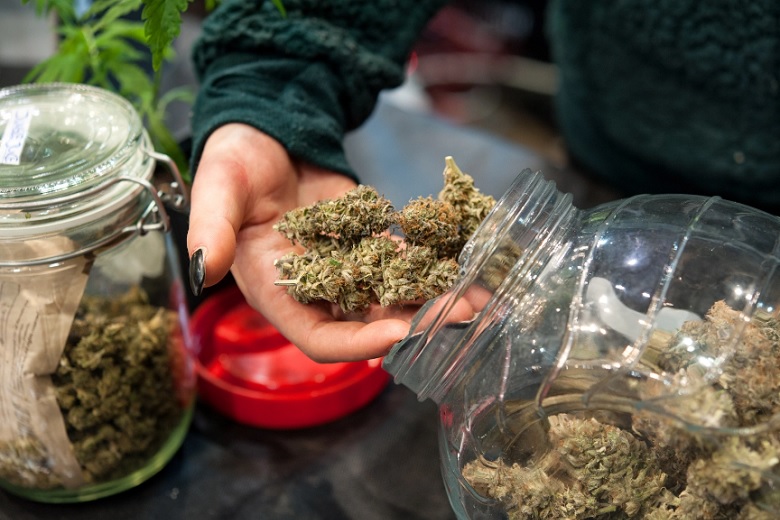Although it has become more popular in recent days, delta-8-THC isn’t particularly new. It has been around for quite a long time, and we have a lot to learn regarding its mild psychoactive qualities and therapeutic potential.
Here are the top 5 things to know about delta-8-THC:
-
1. Delta-8 THC is a natural cannabinoid
The misconception out here is that Delta-8 is a synthetic cannabinoid. However, this cannabinoid is organic and is present in some strains of wild hemp. With Delta-8 THC, there is nothing like the real synthetic cannabinoids, even when it is converted from CBD. Without any actual plant matter, synthetic cannabinoids frequently have potent and hazardous side effects. In addition, synthetic cannabinoid compounds are prohibited, except for a few FDA-approved pharmaceuticals.
-
2. Delta-8-THC can be obtained from CBD
Despite being a naturally produced cannabinoid, delta-8-THC is only present in trace amounts in hemp and cannabis plants. Delta-8 THC is produced on a large scale using CBD. The cannabinoid is much easier to obtain using this method because CBD is widely accessible and is the most prevalent cannabis chemical compound present in legal hemp material. For more, read more about Delta 8 Vape Carts.
The “isomerization” process, which turns CBD into Delta-8-THC, actually reorganizes the CBD molecule. The best example of a product is Delta 8 Lollipops. Even though Delta-8 obtained in this manner is frequently referred to as “synthetic,” that term is not entirely accurate. Typically, no organic plant material is used in the production of synthetic cannabinoids. The term “CBD isomer,” which refers to a molecule with all of the same components as CBD but in a different structure, is more appropriate for Delta-8.
-
3. Delta-8 is psychoactive but not as much as Delta-9 is
Similar to Delta-9, Delta-8 engages the central nervous system’s and brain’s CB1 receptors to interact with the body’s endocannabinoid system. This interaction results in THC’s psychoactive properties, so Delta-8 will get you “high.” However, Delta-8-THC also has an affinity for the CB2 receptors present all over the immune system, in contrast to Delta-9 , which majorly engages with the brain’s endocannabinoid system. The brain and nervous system only absorb about half of the Delta-8 you consume; the other half is taken up by the same receptors that interact with CBN and CBG.
This means that while Delta-8-THC also has psychoactive effects, they happen about half as frequently as Delta-9, which entangles almost purely with CB1 receptors in your brain.
-
4. Compared to Delta-9-THC, Delta-8-THC has fewer undesirable side effects
Because it was less likely to have unfavorable side effects, Delta-8-THC was discovered to be more beneficial than Delta-9 in pediatric applications. There is a ton of anecdotal data to back up this assertion, in addition to the scant research that is currently available.
According to users, Delta-8 may reduce anxiety or paranoia while Delta-9 may exacerbate it. The fairly mild psychoactive properties may be easier to handle and more enjoyable for people who react negatively to Delta-9 products.
-
5. Most states and the federal government have legalized Delta-8-THC
The 2018 Farm Bill made changes that made delta-8-THC legal in the United States when it is obtained from hemp CBD. The legislation delisted tetrahydrocannabinols derived from hemp from the Controlled Substances Act and legalized all hemp products with at most 0.3% Delta-9 THC, including hemp isomers.
State laws on Delta-8-THC vary, despite the substance being legal on the federal level. The vast majority of states have made Delta-8 legal, but some haven’t allowed interstate sales.
Final Word
These are some of the things you need to know about Delta-8. If you need Delta-8-THC products, you can shop for them in top CBD stores.

